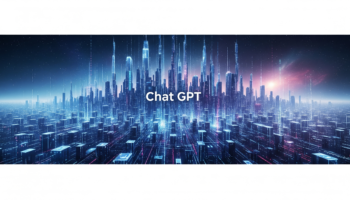The success of Echo is the most difficult to predict among Marvel’s 2024 lineup. People who have grown tired of the studio’s increasingly frequent output will be relieved to learn that it plans to release only four projects this year. Echo is the clear outlier among that group.
Deadpool 3, Marvel’s single 2024 film release, appears to be a hilarious multiverse-spanning epic that honors the X-Men’s 20-plus-year cinematic legacy. Agatha: Darkhold Diaries’ ties to fellow Marvel program WandaVision offer it an advantage over the competition, while X-Men 97, a long-awaited sequel to the original X-Men: The Animated Series, could elicit lots of nostalgia.
After viewing Echo’s first three episodes, I’m certain that it’s a legitimate dark horse contender for the finest Marvel Cinematic Universe (MCU) show of the year. Some may doubt the legitimacy of that opinion, given that Echo currently has no competitors to speak of. Nonetheless, with its superhero take on some of the 21st century’s best assassin and crime-based material, I was pleasantly impressed by what Echo has to offer.
The imitation game

Echo starts up after 2021’s Hawkeye, where Maya Lopez (Alaqua Cox) is chased by Wilson Fisk’s (Vincent D’Onofrio) criminal enterprise. That’s a certainty after Maya shoots the mob boss in Hawkeye’s finale, but it’s her one-woman guerilla warfare campaign to destroy Fisk’s crime empire in her hometown of Tamaha, Oklahoma, that puts a mark on her back. However, Maya quickly discovers that violence breeds violence, forcing her to confront her previous transgressions and unresolved childhood trauma in order to determine the type of person she wants to be.
Echo is the first Marvel show to be released under the studio’s Spotlight banner, a new initiative that focuses on telling grounded, character-driven stories that audiences can enjoy without prior knowledge of other MCU projects. Consider 2022’s Moon Knight, a Marvel series free of larger universal ties. In Marvel’s increasingly complicated multimedia franchise, Echo’s accessibility to newbies is commendable.
It’s a gratifying approach to introduce Maya and the show’s supporting cast to new viewers, who will benefit from the expository information. However, long-time MCU fans may be irritated with the several sequences in episode 1’s opening 30 minutes that are lifted directly from Hawkeye and do not further Echo’s present-day plot.

The vicious action depicted in Echo’s first trailer, which is the MCU’s first R-rated TV show, is a heady mix of bone-crunching physical violence and cutthroat gun skirmishes reminiscent of conflicts in Netflix’s Daredevil and Lionsgate’s John Wick. Given Echo’s ties to the former, similarities between the two are unavoidable, but Echo’s resemblance to John Wick and Breaking Bad is what gives it its distinct style and visual flair.
Daredevil’s influence, however, cannot be exaggerated, particularly in Echo’s cold-blooded set-pieces. Echo isn’t afraid to match its genre sister in terms of ultraviolence, with a gory scene coming just 10 minutes into its debut. From then, things only grow more explicit, with neck-snapping, blood-splattering headshots, and other viscerally gruesome scenes demonstrating the series’ non-child-friendly tone.

However, I believe that the main ruckus in Episode 3 is significantly more brutal and spectacular. Maya’s cunning use of her surroundings, such as employing an arcade’s laser guns and skeet balls as weapons, as well as physical adaptability – her prosthetic leg comes in particularly handy – demonstrate her outstanding cold-blooded competence as she spars with Fisk’s thugs. Echo’s action is intense by MCU standards, which offers me hope for future adult-centric Marvel productions like Deadpool 3 and Daredevil: Born Again.
Character faults

Echo’s major issue, however, is its inability to present an engaging character-driven story.
With Hawkeye revealing that Fisk murdered Maya’s father during the Blip, or the five-year interval between Avengers: Infinity War and Avengers: Endgame, Echo’s protagonist is understandably seeking vengeance on her surrogate parent. Indeed, it is Maya’s constant struggle against Fisk that brings her back to her birthplace, where she strives to undermine his criminal empire by any means necessary.
It’s a plot element that propels Maya’s arc and drives her to confront her past, but in the first three episodes, her character development is little. Alaqua Cox is quite captivating as the moody, emotionally disturbed title character, and she does her best with the material. However, from what I’ve seen, Maya appears to be an aggressive one-note individual. Her ethically ambiguous persona deserved to be filled out by episode 3’s closing credits. Here’s hope that this issue is resolved in Echo’s final two entries, even if it is rushed.

Maya is not the only one whose character development falls short. Whether due to storytelling design or Echo’s abbreviated five-episode plan – episodes 2 and 3 feel like they were patched together from three separate entries – certain characters and their relationship with Maya bear the burden of the show’s shorter episodic count.
Indeed, Maya’s surprise entrance in Tamaha, along with her territorial war with Fisk’s vast empire, make her actions perfect for family drama. The burgeoning gangland war generates an undercurrent of stress in Tamaha’s group and among those closest to Maya – at least outside of her confidant-style relationship with Skully (Graham Greene). The duo’s humorous and genuine conversations stand apart from others. Aside from that dynamic, Maya’s potentially taut interactions with individuals caught in the crossfire, such as her uncle Henry (Chaske Spencer), who still has ties to Fisk’s business, lack the necessary tension.
My verdict
Echo is a fairly enjoyable Marvel show that sets a new standard for the Disney company. The first of its kind to be led by a character with anti-heroic/villainous tendencies, as well as a lead actor who is an amputee, deaf, and Native American, is a watershed moment for the MCU, not least because of the societal and cultural impact it will have on Marvel fans who already have a superhero of this type.
There will be Marvel fans who disapprove of Maya’s revised past and superhuman skills – I won’t ruin anything, but let’s just say her mimic-based talents aren’t the only ones she has – but they’re important to the story Marvel is presenting. I didn’t find them off-putting in the context of Echo’s other important challenges.
Is Echo worth streaming? Yes, for dedicated MCU and Daredevil fans. For everyone else, it depends. Anyone who only sometimes dips their toes into Marvel’s cinematic behemoth may probably skip it. However, if you’re looking for a series with a Netflix-style release that exposes you to the MCU without prior knowledge, or a thrilling and gratuitously cruel crime thriller with heist elements, reams of drama, and the occasional humor, Echo is exactly up your dark alley.






